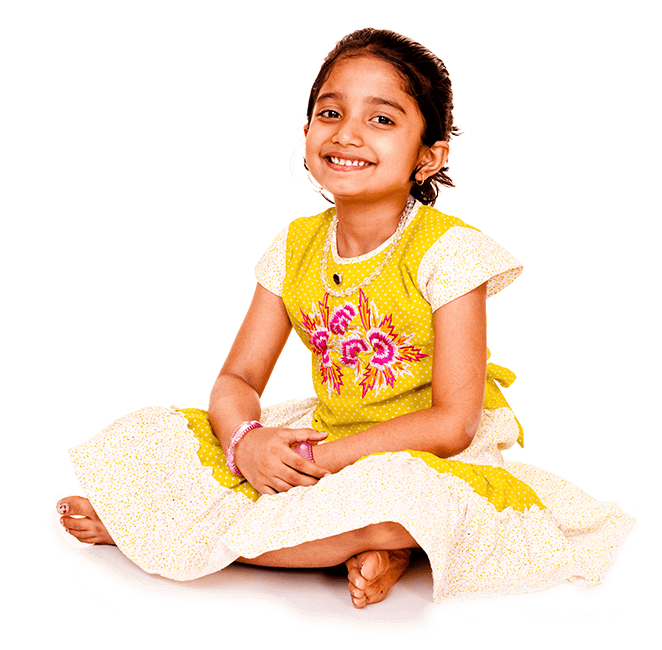Down Syndrome Treatments & Therapies in East Delhi
Down Syndrome Doctor in India - Language development for children diagnosed with Down Syndrome can be challenging and confusing. Factors such as cognitive and motor delays, hearing loss and visual problems can interfere with language acquisition. It’s important that a child’s caregivers provide a variety of opportunities to increase language development.
Down Syndrome Treatment Center in East Delhi using many normal everyday activities can enhance the child’s language and expose them to new concepts. The language you teach to your child will assist them in learning and generalizing new information. Best Doctors for Down's Syndrome in Delhi provide treatment for Language Characteristics of Individuals with Down Syndrome and Down Syndrome Treatments & Therapies in East Delhi.


Children learn to talk from the first year of life as they are talked to and begin to understand that the words they hear around them have meaning. Children learn to talk in an orderly developmental pattern - including children with Down syndrome.
When considering how children learn to talk it is helpful to identify four components which underpin becoming a competent talker:
Learning to communicate
At first, all children communicate using gestures. They point to interesting objects and actions, hold things up to show them, and gesture to request things. When children communicate like this, people around them tend to name what they are looking at, helping them learn the meanings of spoken words.
Learning vocabulary
For Language Development in Children with Down Syndrome to learn to talk, children have to begin to understand and then use the words they hear around them every day. Children learn many different words and build a large vocabulary. As they learn to understand more and more words they are learning more about the world that they live in.
Learning sentences and grammar
At first, children use single words to communicate. Next, they begin to put two words together to express a range of meanings. Then they move on to build longer sentences and to use conventional grammatical markers (such as plural 's' - "dog", "dogs"; possessive 's' - "Daddy's car"; tense markers - 'ing', 'ed' - "jump", "jumping", "jumped") and word order rules to express different meanings.
Learning to speak clearly
As children first learn to talk, their utterances are approximate attempts to say the words that they hear. Children's earliest spoken words may only be understood by their family. Typically developing children quite quickly learn to say words more clearly and most are intelligible at around 4 or 5 years of age. (This does not mean that they talk as accurately as adults but they talk well enough to be understood.)
Take advantage of language opportunities during daily routines
Down Syndrome Treatment Centers provide activities such as taking a bath, cooking, grocery shopping, changing a diaper, or driving in the car are a wonderful time for learning. Caregivers can consistently identify actions, label items, expand on their children’s utterances to facilitate vocabulary acquisition and overall language development. It takes a lot of repetition for children to learn and start to use words appropriately. Include a variety of words that include all the senses. “Does the water feel hot?” or “Can you smell the cookies?” When speaking, identify textures, colors, express feelings etc.
Read, read, read:
It can never be said enough how important reading is to children. When reading a book, it’s important to not only read the words on the page, but to talk about what is on the page, what the characters are doing or how they might be feeling. Make reading a book an interactive experience.
Incorporate play time with other kids
Best Down Syndrome Doctor in India - Children can learn a lot just by interacting with other children as they are interested in and motivated by their peers. They imitate each other’s actions and will learn from them. Play time with other children will also help them develop social skills. Concepts such as sharing, taking turns, pretend play, creating, etc. can all be increased.
Play with them
Children don’t know how to play with toys and games on their own, we need to show them. Get on the floor and play with blocks, balls, bubbles, sing a song, etc. During this time talk about what you and the child are doing (Ex: stack up the blocks, let’s blow more bubbles, it’s my turn) and expand on their utterances. Play time is critical for children to develop their ability to focus and attend to a task. When you are engaged together in a task, you are developing a special bond with your child and they are learning!
Down Syndrome Clinic in East Delhi offers services in Delhi, Noida, Ghaziabad, Gurugram, Faridabad and all over India! If you have any questions or concerns about your child, we would love to help! Give us a call at +91 8586927835, +91 9891242568